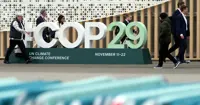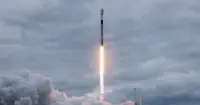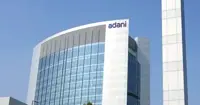Govt creating opportunities to sustain enterprise: Modi
30 Jan 2016
India should improve the use of its natural and human resources in order to increase value addition through a more efficient allocation of resources, both through better management and easing of unnecessary controls and distortions, Prime Minister Narendra Modi said on Friday.
But, more importantly, Modi said, the government's emphasis is on creating new opportunities for citizens to progress and give them a choice of opportunities. ''Opportunity is like oxygen to the aspirational citizen and we are keen that this is never in short supply. In simple terms, it means `Sabka Saath, Sabka Vikas', Modi told business leaders at The Economic Times Global Business Summit.
The test of development, the prime minister stated, is improvement in the quality of life of the ordinary citizens, and more so of the poor and the less privileged.
He said despite scepticism among some in the early days of this programme, today these accounts have a balance exceeding Rs30,000 crore or over four billion dollars. We have also issued a record number of debit cards to them. With this, he said, the market share of an indigenous credit card brand has also exceeded 33 per cent.
''We have introduced a new and comprehensive program of crop insurance. This empowers farmers to give their best, with the state providing cover against risks beyond the farmer's control.
''We have introduced soil health cards to empower our farmers. The card will tell every farmer the exact character of his soil. This will enable him to increase crop yield, reduce over-use of chemical inputs and fertilizer and restore soil health.
''Entrepreneurship is one of India's traditional strengths. It was sad to see it neglected in the last few years. ''Business'' and ''profits'' had become bad words. We have changed that. We need to value enterprise and hard work, not wealth.
Development is not entirely economics, it also involves better governance - if a government is progressive, and runs an honest and efficient administration, the biggest beneficiaries are the poor. ''Poor governance hurts the poor more than it hurts others. Therefore, improved governance is as important as economic reform,'' Modi said.
In a globally connected world, actions of one country affect another in various spheres, including trade, investment as also in matters of pollution and environment, hence there is a need to attune domestic policies to global requirements, he said.
''Indeed the distinction between domestic affairs and foreign affairs is increasingly losing relevance. For a country in the modern day, it is not sufficient that its economic policies should only address its domestic priorities. To me, India's policies must be such that they make a positive contribution to the rest of the world,'' said Modi.
The prime minister also talked about the contribution of India in sustaining global economy at a time of economic stagnation in many parts of the world.
He said India contributed 7.4 per cent of global GDP in purchasing power terms in 2014-15 while it contributed 12.5 per cent of global growth. Thus its contribution to growth is 68% higher than its share of the global economy.
Foreign investment in India also increased by 39 per cent in the last 18 months, at a time when global FDI has fallen, Modi pointed out.
Modi also touched upon the need for conservation of resources and protection of environment.
''We are committed to reducing the emission intensity of our GDP by 33 per cent by 2030 even while growing at a fast pace,'' he said, adding, ''For a country which is already at a very low base of per capita emission, this is a very ambitious target.''
Modi said his government is committed to the goal that 40 per cent of the country's electric power capacity will be from non-fossil fuel by 2030. India, he said, has also committed to building an additional carbon sink of over 2.5 billion tonnes of carbon dioxide equivalent by creating additional forest cover by 2030.
In this context, Modi pointed to India's leadership in launching an international solar alliance, involving 121 countries falling between the Tropic of Cancer and the Tropic of Capricorn. This commitment is from a country with a very low per capita land availability, he added.
This initiative will help many developing countries, from Africa to South America, to take advantage of developments in renewable energy around the world.
Even in terms of basic economic parameters like GDP growth, inflation, investment, and the fiscal deficit, he said since his government took office, growth has increased and inflation has decreased. Foreign investment has increased and the fiscal deficit has decreased. And despite a slow-down in global trade, the balance of payments deficit has also decreased.
Yet, such broad statistics give only a partial picture of what we are attempting, and what we are achieving. It is often said ''the devil is in the detail''. But I believe that God is in the proper execution of many so-called details. It is these so-called details which, when done well, add up to a big picture.
You may be interested to know that in 2015 India achieved:
- Highest ever urea fertiliser production;
- Highest ever production of ethanol as blended fuel, benefiting sugarcane farmers;
- Highest number of new cooking gas connections to the rural poor;
- Highest ever output of coal;
- Highest ever generation of electricity;
- Highest ever quantity of cargo handled by major ports;
- Fastest average turnaround time in ports;
- Highest ever increase in railway capital expenditure;
- Highest ever number of new highway kilometres awarded;
- Highest ever production of motor vehicles;
- Highest ever software exports;
- Highest ever rank in World Bank `Doing Business' indicators; and
- Highest ever foreign exchange reserves.
He said, in 2013-14, the total number of national highway kilometres awarded was about 3,500 km. This more than doubled in the first year of the NDA government to nearly 8,000 km, an all-time high. ''This year we are planning to award 10,000 kilometres.'
The Shipping Corporation of India, which made a loss of Rs275 crore in 2013-14, made a profit of Rs201 crore in 2014-15, a turnaround of Rs575 crore in one single year, Modi pointed out.
''Our programs ranging from MUDRA to Start Up India and Stand-Up India provide opportunity to the hard working and to the enterprising. In so doing, we have placed special emphasis on Scheduled Castes, Scheduled Tribes, Other Backward Classes and women. We are empowering them to become masters of their own destinies.''

.webp)


.webp)


























